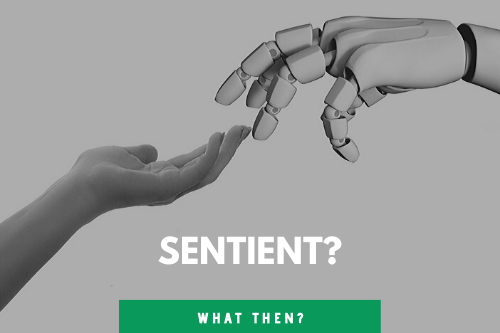
YouTube / iTunes / Spotify / Radio Public / Pocket Casts / Google Podcasts / Breaker / Overcast
Listen to ArtisanEnglish.jp posts & lesson intros here.
Word of the Day: Sentient
Humans, well, at least most humans, are sentient.
This means that they can feel and experience feelings or emotions.
I say most humans as a joke.
Sometimes it seems that some people have no feelings at all because of the cruel things they do, but that’s beside the point.
Some people may disagree, but animals are sentient too.
Anyone who has ever lived on a farm had a family pet, or otherwise lived or worked with animals in some way will readily admit that animals seem to have and express emotions towards other animals and people too.
Countries such as New Zealand (2016) and France (2015) have officially recognized that all animals are sentient beings.
As a result, there are animal rights and punishments for people who commit cruelty against animals.
People are sentient.
Even though animals are not people, we can agree that they, too, are sentient.
Herein lies our challenge.
Is AI (artificial intelligence) sentient?
At the moment, it’s probably safe to say no.
We may personify Amazon’s Alexa or Apple’s Siri, but unless you’re Raj on The Big Bang Theory, you won’t fall in love with Siri, and she definitely won’t fall in love with you either.
But what if she could?
Let’s imagine for a moment AI could feel emotions.
I don’t mean to imitate or portray them as if they were acting.
I mean, feel genuine emotions such as embarrassment, anger or love.
If AI becomes sentient in the future, will it deserve the same rights as animals or even humans?
That would change things.
Flesch-Kincaid Readability Test
This post is understandable by someone with at least an 8th-grade education (age 13 – 14).
On the Flesch-Kincaid reading-ease test, this post scores 69.
The higher the score on a scale of 0 – 100, the easier the passage is to read.

